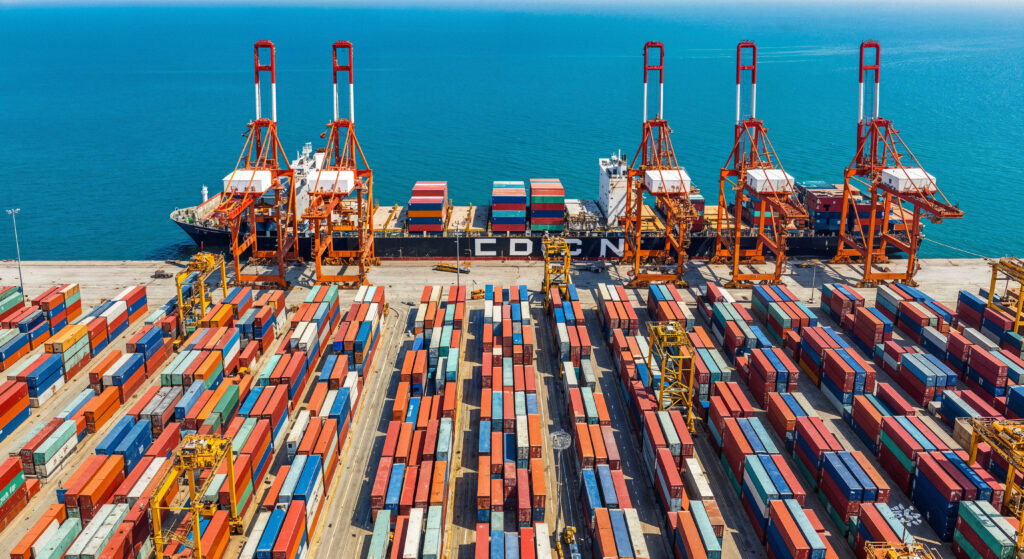Doing business in the UAE, particularly in trade and logistics, can be highly profitable. However, companies must understand transport duties and tariff regulations. These are the fees imposed on goods when they cross borders. By understanding how they work, businesses can reduce costs, ensure legal compliance, and avoid unnecessary delays.
What are Tariffs and Duties on Transport?
Duties and transport tariffs are fees imposed on products upon importation into a nation. They may be in the form of customs duty, value-added tax (VAT), and other state charges. They are part of the final price of the product and what becomes of the product when it arrives. If an organization is uninformed of them, it may end up spending more money, missing deadlines, or violating rules and regulations.
Customs Duties in the UAE
In the UAE, almost all foreign merchandise imported is imposed a 5% customs duty. That 5% is on the CIF value of the product. CIF stands for Cost, Insurance, and Freight, added to the value of the goods plus the cost of transport and the insurance.
There are certain specific special commodities, such as luxury items, on which additional duty can be charged depending upon the HS code. An HS code is a product code for merchandise that is applied for classifying goods globally. It’s highly necessary that the right HS code should be enforced so no penalty or wrong duty is being incurred.
Tip: Check product classification while creating shipping documents.
Value Added Tax (VAT)
Most goods and services have been subject to the UAE’s VAT, set at 5 percent, since 2018, including imported goods. VAT is levied on the customs value of products and paid when the products enter the country.
Businesses in the UAE whose revenue exceeds AED 375,000 a year must be VAT registered with the Federal Tax Authority (FTA). For some registered businesses, VAT paid on imports can often be reclaimed if the goods are used to create a product or service that is subject to VAT. Learning how VAT operates will benefit your company’s cash flow.
Free Zones and Their Advantages
The UAE has numerous free zones, which are specifically authorized zones offering tax advantages and simplified setup processes to companies. If your business is based in a free zone, you can avail yourself of the following:
- No tax on products that remain within the free zone.
- Foreign ownership of up to 100% can be permitted, in contrast to certain areas of the mainland.
- Rapid business setup and less paperwork.
But if products are transferred from a free zone to the UAE mainland, customs duty and VAT will be charged. So, it’s worth taking care while planning your shipping route and destination.
Free zones can be a cost-effective method, particularly for businesses that engage in a lot of international trade.
How Safe Box Logistics Benefits Businesses
Safe Box Logistics, UAE is a name that speaks volumes in local and international logistics. We provide end-to-end service to assist your business in coping with customs fees, VAT, and all customs clearance solutions and shipping documentations.
Your business can gain many advantages by using the services of Safe Box Logistics:
- Expert Guidance: Their professionals break down complex rules into an easy-to-understand form and inform you of what you need to do.
- Customs Clearance: They get it done for you by UAE customs authorities and save you time and trouble.
- Cost Reduction: By getting the goods classified properly and using proper documents, they save you additional cost.
- Document Processing: They assist in preparing invoices, packing lists, etc., that enable seamless customs clearance.
With many years of experience in the UAE logistics industry, Safe Box Logistics services numerous businesses across numerous industries, such as retail, manufacturing, and e-commerce.
Why Proper Documentation Is Needed
Wrong documents or error documents are one of the biggest reasons for delays in the movement of cargo. Listed below are some of the most critical documents you require when importing goods into the UAE:
- Commercial Invoice: It is the statement of description and value of goods being exported.
- Packing List: It gives details of contents in the loads.
- Bill of Lading: It is an agreement between the carrier and the shipper.
- Certificate of Origin: Indicates the country where the goods were produced.
Having professionals such as Safe Box Logistics by your side will ensure your documentation is correct and comprehensive.
Global Trade Agreements
The UAE has signed trade agreements with various nations, such as South Korea, India, and so on. Such agreements can exempt or lower customs duties on particular products. If your products belong to a country that has an agreement, you can import them at low cost. It is always advisable to know if your products are under a trade agreement. This saves you lots of money in the future.
Conclusion
It is important to know the transport charges and taxation in conducting business in the UAE. Safe Box Logistics makes customs, documentation, and transport easy. Let us help your business with speedy and secure logistics solutions.



